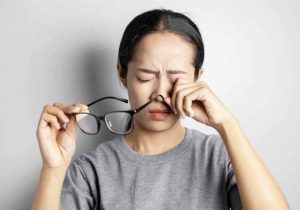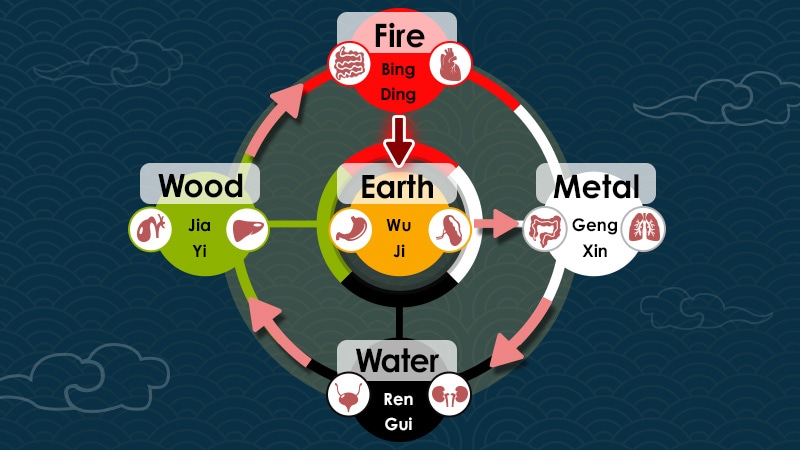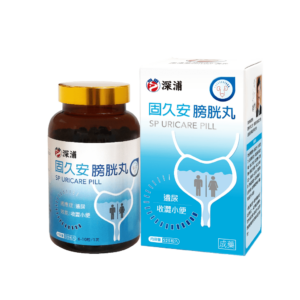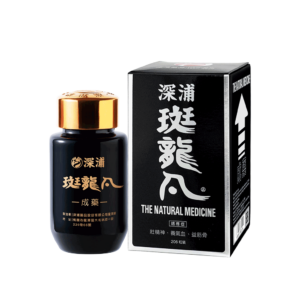
Ageing eyes are not the preserve of the elderly Watch out for young cataracts
Nowadays, people of all ages, both men and women, slide their mobile phones every day, as if they are holding a light bulb and looking

Frequent urination, incomplete urination, and the fear of being away from a restroom—bladder problems, though common among people, are often a sensitive topic. Dr. Sheng-Pu Lee, the director of Sheng-Pu Chinese Medicine Clinic, emphasizes the close connection between traditional Chinese medicine and overall health. The meridians of the kidneys and bladder are interconnected, and insufficient kidney Qi is closely related to bladder weakness. This condition can lead to various systemic symptoms, such as inadequate blood production, osteoporosis, and cardiac hypoxia. Given Taiwan’s status as the ‘Dialysis Kingdom,’ Dr. Sheng-Pu Lee advises people to engage in early care, seek stable treatments, and nurture the kidneys to protect the bladder, ensuring the health of the lower body.
The bladder and kidneys are closely connected, and any pathology in the kidneys may result in urinary irregularities. The meridians of the kidneys and bladder are interlinked, mutually representing interior and exterior aspects. Physiologically, the kidneys govern water storage, while the bladder is responsible for water excretion, together maintaining the balance of fluid metabolism. The steaming action of kidney Yang facilitates the downward permeation of fluids into the bladder, and, in turn, the bladder, leveraging the influence of kidney Yang, eliminates urine through its own functionality.
The 《Essentials of Expanded Miscellaneous Diseases (Za Bing Guang Yao 雜病廣要)》states, ‘Frequent urination indicates deficiency of the lower yuan, where the kidneys fail to control water, leading to dribbling.’ The lower yuan refers to the lower dantian, bladder, genitalia, and anal regions—areas where the body’s energy gathers. Pathologically, insufficient kidney Yang, especially as a person ages, can result in bladder weakness, inadequate energy, diminished elasticity, and symptoms such as frequent urination, urgent urination, nocturia, incomplete urination, and even inflammation. Bladder issues may also affect the kidneys, causing lower back pain and hematuria.
Dr. Sheng-Pu Lee further explains that the five zang organs belong to Yin, while the six fu organs belong to Yang. The kidneys correspond to the ‘Foot Shao Yin Kidney Meridian,’ and the bladder corresponds to the ‘Foot Tai Yang Bladder Meridian.’ The kidneys, although Yin in nature, are located at the lowest part of the five zang organs and possess the highest energy. Below the bladder, there are the prostate gland and urethra, making it a convergence point for the sympathetic and parasympathetic nerves and the intersection of Yin and Yang. The interaction between the zang and fu organs is intricate, akin to the subtle dynamics of inhalation and exhalation or squatting and jumping, representing reflections of energy.
While the bladder is a focus, the kidneys are also closely related to the heart. The kidneys filter impurities from the blood, allowing the purified blood to circulate back to the heart. In traditional Chinese medicine, the heart belongs to the ‘Hand Shao Yin Heart Meridian’ and is responsible for promoting blood circulation. Therefore, the health of the body can be inferred from the kidneys.
Western medicine assesses kidney function through parameters like the blood urea nitrogen (BUN) level, while traditional Chinese medicine considers overall health. Dr. Sheng-Pu Lee explains that Chinese medicine is highly insightful; the kidneys govern bone health, and bones are linked to bone marrow and hematopoiesis. For instance, when girls experience their first menstruation around the age of 12 or 13, the bone marrow is highly active, leading to faster blood production. If the kidneys are healthy, blood production is sufficient. However, if blood volume is inadequate, the kidneys will gradually weaken, leading to symptoms such as bladder weakness, allergies, asthma, sneezing, runny nose, coughing, chest tightness, rapid breathing, shortness of breath, easy fatigue during walking, difficulty breathing, osteoporosis, and even cardiovascular narrowing, blockage, or hardening.
Traditional Chinese medicine classifies the body’s organs according to the five elements: metal generates water, water generates wood, wood generates fire, fire generates earth, and earth generates metal. Dr. Li Shenpu states that the perpetual cycle of the five elements is fundamental to the functioning of life, and traditional Chinese medicine pertains to the primal interactions within the human body, achieving holistic health. When noticing a decline in vitality, attention should be paid to the health of the kidneys and bladder. It’s crucial not to wait until illness strikes to seek medical attention. Early maintenance with Chinese medicine can lead to a lifetime of happiness.
Metal: Lungs
Water: Kidneys
Wood: Liver
Fire: Heart
Earth: Spleen

Dr. Sheng-Pu Lee emphasizes that Taiwan is the kingdom of kidney dialysis, and many patients may hop from one doctor to another. However, frequent blood tests, especially in patients over 60 with declining blood-producing functions, can pose risks due to the use of contrast agents. While these agents involve low radiation, they can still harm the body. Therefore, patients are advised not to change doctors hastily and to give prescribed medications time to take effect, typically over several weeks.
Aids in knee weakness, bladder weakness, poor kidney function, and intercourse disorders
Originally from: Healthnews.com.tw
Healthnews/ Reporter Yi-Fun Cheng reports



Nowadays, people of all ages, both men and women, slide their mobile phones every day, as if they are holding a light bulb and looking

Forty-year-old salesman Zhang usually work under pressure, always feel stuffy chest, breathing problems, as if there is a heavy pressure, always can not breathe enough,

When a cold snap hits, it may not affect young people, but older people need more attention. Chinese medicine often refers to qi and blood,